We are relying on ancient rocket engine designs to shoot us into space! Is the Aerospike engine an alternative?
The rocket science and industry is so high tech and so advanced that it has sparked the well known expression: "It's rocket science". But is it? In this time we live in we should strive to know more about the world around us and knowing a little bit of science is surely going to help you in many other situations so this is why I write this rather educational article which is trying to break the science up into small easy to digest pieces to quench the thirst of the usual reader instead of focusing on only the scientists.

To better understand how this engine works we need to understand how the basic rocket engine works. When we are talking about a rocket engine, your imagination will provide you with an engine like these ones:
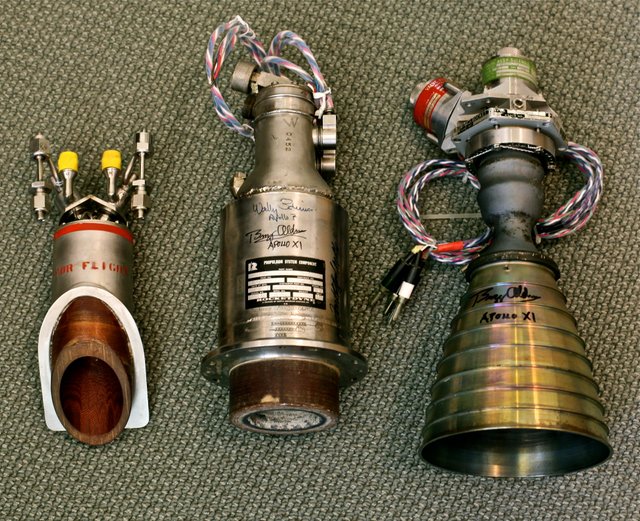
Source
Without going into too many details about the operation principles which I will probably bore you another time with as others have written about it and have been approved by SteemSTEM, the basic principle is that propellant ( fuel + oxidizer) is pumped into a combustion chamber via a turbopump and after being ignited, the exhaust goes through a narrow part called nozzle which speeds the expanding gasses to a supersonic speed which are then directed by the nozzle skirt extension (the recognizable cone or bell of the engine) which directs the flow in a straight line, as any other direction would reduce the efficiency of the flow.
This physical process of creating and directing thrust is using Newton's Third Law, which I have explained in a previous article in my space series.

So why is it ancient tech?
Because from the invention of the engine back in the 50's and 60's we have done practically nothing to improve the design, which is severely flawed, and it all comes into perspective when you ask yourself what is the engine supposed to do and what it actually does?
Unlike the first use of a missile, which travels horizontally at the same atmospheric pressure, the rocket travels perpendicular through all of the atmospheric layers, of different pressures. Now, if you are not a flat earther, the education should have taught you that the atmospheric pressure (barometric pressure) is the pressure exerted by the weight of all of the "air" particles onto any object under it.
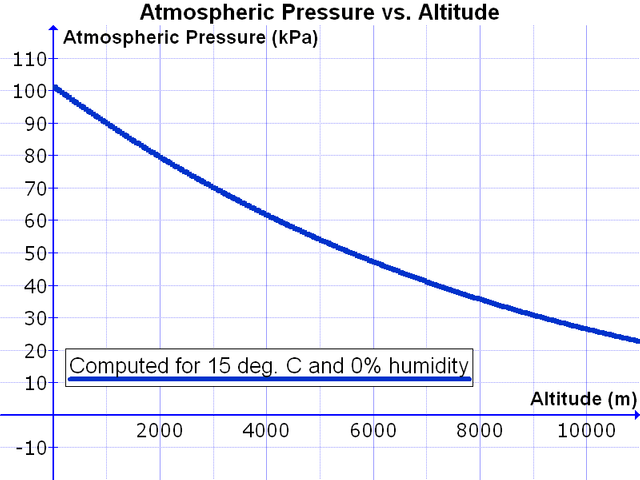
As the rocket encounters reduced pressure most of the following situations will successively happen. Source
What does this mean to our simple design rocket engine?
The most important consequence is that the varying pressure is affecting the exhaust gasses coming out of the nozzle skirt extension (the bell of the rocket) into ways that can be catastrophic or just render the engine crassly inefficient.
The following figure can explain the nozzle skirt extension aperture limitations and I will explain a few of the situations while you get to see the graphic:
I have said it before, the most efficient way to propel a rocket is by igniting the gasses and ensuring that they are evacuated in a straight perpendicular way so the second figure is the "right" way to do it if we want to get anywhere efficiently. And with the distance to Mars taking us 3 to 6 months of travel time, this is definitely something we want to do :)
The first figure is the inefficient way to travel because the expansion of the gasses outside of the nozzle skirt extension is reducing the efficiency.
The third situation ( called over-expansion) is the reduction in the gasses flow due to the increased atmospheric pressure and while it doesn't reduce efficiency it can put the nozzle skirt through higher loads and reduce its lifespan.
The last situation ( called grossly over-expansion) is usually only encountered at engine start-up, for a few nanoseconds, as the forces to which the nozzle skirt extension would be subjected to and vibrations would be so great it would cause a "rapid unplanned engine deconstruction" or how we usually refer to it, a BOOM
So how was this fixed by the rocket science industry?
It simply wasn't. It was deemed too expensive and after 20 years of engine research stagnation and several clumsy attempts by NASA, Lockheed Martin and others, the funding was cut ( I will go on a limb here and say that it was redirected by the Bush Administration towards military spending in Iraq but we have no ways to actually know where those money actually went) and all we have of the project and prototype is this pixelated image of the X-33 project:
Which is just sad for science!
I will search the blockchain to see if I can explain it to you in more details, the project was amazing and it got so many technologies in one place that it still astounds me as to where we could have been today if it would have been successfully funded.

Source: screen capture of a rocket launch
The conclusion of the fixed nozzle skirt engine?
It can only work efficiently at a single atmospheric pressure and that can't be at the middle of the atmosphere because the over-expansion is much more dangerous so it has to be the most efficient RIGHT AT THE TAKEOFF, then the engine loses its efficiency rapidly. It's why we see those flowers when we watch a rocket launch burn into the higher atmosphere.
The use of a variable nozzle skirt is not a solution
Even with the material advancements and the improvement of previous designs with materials like graphite and tungsten, the use of ablative walls and regenerative cooling that some newer designs like the ones from SpaceX use, the traditional bell engine is too heavy to actually make a difference, as the added weight would match the weight of additional fuel being added just to overcome the inefficiency of the engine.

Meet the alternative. The Aerospike engine!
While it is hardly a new engine per se, this type of engine is revolving around an inverted cone or bell, designed to prevent structural loss in case of over-expansion and to allow for the atmospheric pressure to press the gasses to the walls of the inside cone, while better materials help with the cooling and with stability and thrust variations. This type of engine can come in a radial shape, where it gets its name of aerospike or in a linear configuration, which is highly modular. But let's just see it:
It doesn't look that cool, doesn't it? It's because the only functional engines are tiny engines on demonstrators (tiny functional rockets and missiles built just to illustrate a concept).
The first design and tests were made in the 1960's and since then a lot of further improvements were used in subsequent designs, stronger and lighter materials meant that cooling or melting was no longer an issue even on larger engines. There were a lot of other variations, with the one being the strongest contender to classic bell engine being the linear engine, which is modular, which means that without further testing and approval it can be sized up or down according to the need. It was tested by NASA a few decades back and they were pretty happy with how it worked. I am happy about how it looks also:
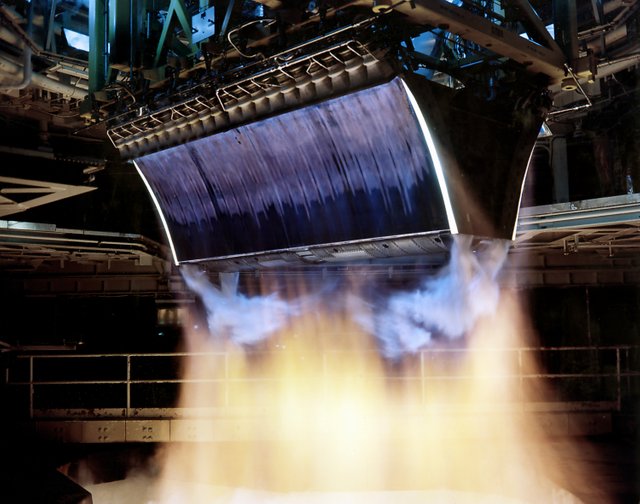
This is more like it, right? You can spot the fuel lines on the external upper side which then use the atmospheric force to compress it onto the internal nozzle. As the pressure drops, the gasses are less compressed and the thrust grows without breaking the optimal angle of exhaust so the engine operates at optimal efficiency all the time, from sea level to the vacuum of space. This engine is thus also getting rid of those pesky stages, each with their own little or not so little bell.
By using up to 30% less fuel at low altitutes and being more efficient than the classic bell engine at any other altitude, and being able to power what is called a single-stage-to-orbit or SSTO vehicle it could easily be the most popular solution we have or we will have in the close future.
While in the past having an expensive engine would not be economically viable, because it would get destroyed on return, now with the advent of reusability, the costs can be kept down.
Why don't you read another article by @pearlumie about this subject here. More than one viewpoint is always good for keeping yourself unbiased and well informed.

So if it's that good, how come SpaceX doesn't use it?
Everything a private company does is subjected to a risk analysis. Because NASA didn't manage to fully test it and Lockheed Martin pulled back its own funding from the project, there is a big resistance coming from private companies to adopt it. Risking the investors money on a project that already innovates in all areas is considered as a not needed limitation. The engineers at SpaceX are more than happy to work and develop a new engine and perhaps that in the future this will also be the what they will do, but for now they need to have fast and cheap results for the investors to see.
So in the end it comes down back to the classic way the world should work. The educational system must propose solutions that government funded research projects can utilize, develop and regulate and then the private sector can have the fine tuning operations and actually implement it. They will in return make a ROI which they will or could use to actually fund the research projects in the first place.

The future (hopefully 2018), I hope to be on location of the launch.
The only viable upcoming release of an Aerospike is from ARCA Space Corporation, funded in 1999 by a fellow Romanian, a partner of ESA and developer of many other projects in collaboration with other Romanian companies from the private sector and from the government.
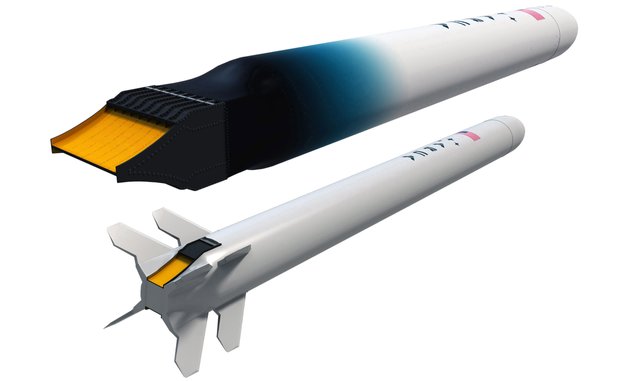
Source: under Fair Use
Their rocket uses a modular linear Aerospike engine and according to their own data, the launch of its demonstrator is planned for 2018, to practically do what Lockheed Martin and NASA didn't manage to do in their testing. It's a bold goal and I will be very interested to see them succeed, especially since the launch will be done in Romania and I will try to attend it when it will happen and bring you the footage and data if I get the necessary access.
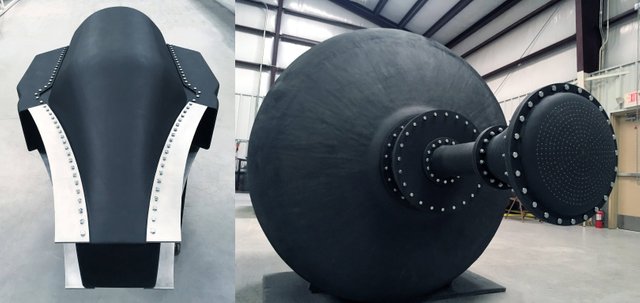
Source.The composite fuel tanks to be tested in 2018, used under Fair Use. I am very curious to see them in action as it would be a huge step forward for the space industry.

Conclusions
The aerospike engine is an old solution to an old problem that was never resolved due to funding and political feuds, bringing the industry to its knees when it should have soared. While the lack of efficiency is not a huge deal for now, since we don't even leave the Earth Orbit anymore like we planned to in 1960's, the development and use of a new type of engine would be a good addition to all the other advancement in the industry, and keeping pace with the reusability issues that seem to hold the private sector back.
The cancellation of the X-33 in 2001 and the limited funding of the University of Long Beach California University shifted the development of similar engines only by the private sector, Firefly Aerospace and ARCA Space offering the only full scale alternatives, which are either phased out or waiting in demonstrator testing and development as of 2018.
We have to wait for the ARCA Space to test before we can say for sure if there is any future for this engine.

Further reading
https://en.wikipedia.org/wiki/Aerospike_engine
https://en.wikipedia.org/wiki/Rocket_engine
https://en.wikipedia.org/wiki/Newton%27s_laws_of_motion#Newton's_third_law
https://arc.aiaa.org/doi/abs/10.2514/6.1997-3218
https://arc.aiaa.org/doi/abs/10.2514/6.1999-2936
http://www.arcaspace.com/
http://www.arcaspace.com/en/haas2c.htm
https://en.wikipedia.org/wiki/Rocketdyne
- the creator of the Aerospike engine


Contribute STEM content using the #steemstem tag | Support SteemSTEM authors | Join our curation trail | Visit our Discord community | Delegate SP to SteemSTEM



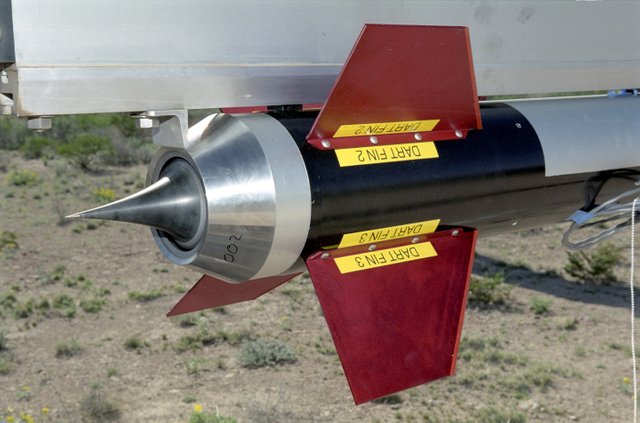
Excellent post. I had no idea there were even alternatives. I just toured NASA's Johnson Space Center and saw nothing about this type of engine while I was there.
Proud member of #steemitbloggers @steemitbloggers
Of course not, since the prototype was cancelled before being fully built. I really hope that as the private sector wins some of the pie slice of the market, it will develop their own ideas and fund them without the problems coming from the political agendas of various administrations.
Just as the Pharma sector did, as soon as they had a steady profit they started having their own research.
Thanks for dropping by, I know you were impressed by NASA-Johnson.
This was a very interesting read! Thanks for sharing! I have been following SpaceX for a long time now and I am really excited about a lot of the stuff they are doing for space travel. It will be interesting to see if they adopt something like this once NASA acknowledges the validity of it.
They will, I have my sources :D
It seems that this small Romanian company will acknowledge the validity first, if everything goes to plan, this year.
Very cool!
Wow, this was really interesting! Thanks for the in depth post! I really had no idea that there were so many variations on the nozzle exhaust and how they would affect the rocket, although in hindsight it does seem obvious. In my previous studies, these were the problems we left for engineering department....
HA! :D
Well, there are more problems that are not highlighted when you sign up for the industry.
Everyone goes with an open heart and ready to innovate and then gets stuck in some political limitation or ancient policy :D
Thanks for dropping by, I really enjoy writing and would like more of the newbies would read this and get motivated to write their own sciency articles.
I've been trying to get up my courage to write a steemstem article, my first degree was in science but I never worked properly as a scientist. I might check out a few more, and see if I can manage!
I am the same, the community welcomed me, I am a shy person but I found out after 30 years that being too shy makes other maybe less prepared individuals take the stand while you fight your own inner-war :D
What do you have to lose by writing? Nothing and you would probably feel good afterwards with that voice you were just given..
Brilliant post. I was delighted to learn about this new and more efficient propulsion engine.
Really well written.
Thanks!
Thank you very much, support is always welcome.
I am still trying to make the articles a little funnier and expand my reach. I would like more people to learn the basics of science and maybe later, with the help of SteemSTEM, I could proceed with my project of improving education and spread science in my country by holding seminars and workshops on steem and science. For the people in my country (which is close behind Ireland in terms of development), the steem income could mean a difference, could mean the way to continue their education..
Pretty crazy how far we advance in a few short years when there is a war involved.
Well, the cold war was indeed a boom for the industry, but the people involved were also very interested in advancing. I have read about some of the engineers and some of the Directors at the time and what they achieved was because of dedication and passion. Politically yes, the funding was mostly due to the war. What we would need now is to make the politicians understand that space is indeed a new frontier.
Congratulations! This post has been chosen as one of the daily Whistle Stops for The STEEM Engine!
You can see your post's place along the track here: The Daily Whistle Stops, Issue 209 (7/28/18)
The STEEM Engine is an initiative dedicated to promoting meaningful engagement across Steemit. Find out more about us and join us today.
Thanks!
You are always keeping an eye over your community and this is what I like about you. I have always recommended TheSteemEngine to everyone I know.
Wow. I'm so used to the existing tech that the aerospike design seems counter-intuitive. Thanks for sharing.
I also liked your analysis of why Space-X didn't take this on. But I think once they get some good cashflow going with a few years of experience, they are going to want that efficiency for their bottom line. It's only a matter of time.
They will, but they have to deliver on their first promises or they will go bankrupt. It's how a private venture differs from a state agency. It will happen, but the risks are too great for them to research and test everything. As the fuel for the Falcon 9 is 200k and the rocket is tens of millions, they would not risk losing a rocket to bold innovation just for a tiny saving in fuel :)
I'm with you on that one. I'm really curious about the linear design, too. that just doesn't look like something that would work in flight. I can see on jet airplanes, though. They have that cone design, though it's not exactly like the aerospike.
Here you go! From scale tests in the 60's. Check the volume first! It's a rocket engine afterall :)
Great, thanks. I don't think anyone got to sleep that day.
This ain't no rocket science. oh wait! It is.
Loved the blog!
Thanks, I will resume writing about space as soon as I have more time. My other projects are also requesting my time and I don't want to undermine the time I have to spend as a mentor around here.
But I am not going anywhere :)
Hi @alexdory my name is Edryne and I followed and upvoted you because I think you are nice. I hope you wouldn't change.. Best regards from @edryne678
Posted using Partiko Android
By writing and engaging here you can make a lot of friends and get to know many things. I would read about your life and about your experiences as the Philippines are so different from what I am used to.
What I would advise you to do is to stop asking money for your services. It ruins your image, people want to discover and meet people who like to share and read other articles. Asking money to resteem or like articles (especially when you are a newbie yourself) is taking from the trust of others in you.
You will do much better here if you follow the common sense rules:
1.Be a helpful human being
2.Share about your experiences
3.Engage and comment on other people since it will bring you money and friends
4.Learn, actually learn from what others say and have to say
5.Enjoy having a global voice, you will not make money in the first month but you will soon see that all your articles will worth more and more.
You have nice posts, I am sad to see you want to leave already.
Cheers!
Did I asked money from anyone here? I thought you were nice guy! So sad that I am wrong! Now I discover that you are NOT! You think I'm asking money from anyone else? Hahaha... 😂😂 you guys are weird!! You want money? I have stored it in my house.. Please come over here!!!
Posted using Partiko Android
I think you misunderstood my actions or maybe I was not effective in passing on my advice. When I receive a comment I look at your business card for your description. What I saw was this:
So the most important thing that you wanted to share with us about you was that you receive money to resteem any post, regardless of quality and you will even upvote all posts of the ones who send you money.
I would have expected you to write how you are a teacher, how you like teaching and how you are a social and cultured person.
I am a mentor for steemSTEM and steemRomania, I spend huge amounts of my own time trying to help others, if you think that you are not like that, why don't you change your business card into something that actually tells something about you.
I hope you do have a great time here and you don't hesitate to ask me questions if you think your account is growing slowly.
Ohh.. That 0.090 thing is what you mean? I copied it from one of the member here in steemit. If you dont like it, I will remove it if you want! I just don't know what to put in there just because it's my first time on that moment.. I thought all of us here in steemit should put on that thing Ok! Goodbye @alexdory
Write something about yourself. Something that represents you!
It's that easy!
This post has been voted on by the steemstem curation team and voting trail.
There is more to SteemSTEM than just writing posts, check here for some more tips on being a community member. You can also join our discord here to get to know the rest of the community!
A great community of people passionate about science and teaching.
Which will improve even more, soon!